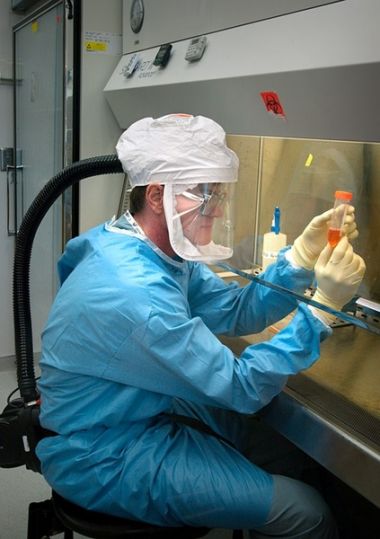Bacteria able to resist even the most potent antibiotic discovered by Pentagon experts, alarm health officials

For the first time in history, researchers from the U.S. Defense Department have discovered a strain of bacteria that resist antibiotics, triggering alarm among top public health officials.
According to a report by The Washington Post, this drug-resistant strain of the E. coli bacteria was found last month in the urine of 46-year-old woman from Pennsylvania.
In a study published this week in the Antimicrobial Agents and Chemotherapy, a publication of the American Society for Microbiology, the Pentagon researchers said the bacteria particularly resisted the antibiotic called colistin.
Colistin is known in the medical community as an antibiotic of last resort because of its effectivity in fighting a family of bacteria known as CRE, or more popularly known as the "nightmare bacteria." These bacteria reportedly kill up to 50 percent of infected patients.
The authors of the study said this alarming discovery "heralds the emergence of a truly pan-drug resistant bacteria."
In an interview, Centers for Disease Control and Prevention Director Tom Frieden said this new development does not bode well for patients.
"It basically shows us that the end of the road isn't very far away for antibiotics — that we may be in a situation where we have patients in our intensive care units, or patients getting urinary-tract infections for which we do not have antibiotics," Frieden told The Washington Post.
"I've been there for TB patients. I've cared for patients for whom there are no drugs left. It is a feeling of such horror and helplessness," Frieden added. "This is not where we need to be."
Health officials from Pennsylvania nevertheless said the discovery should not cause public panic, because the patient carrying the drug-resistant bacteria can still be cured.











